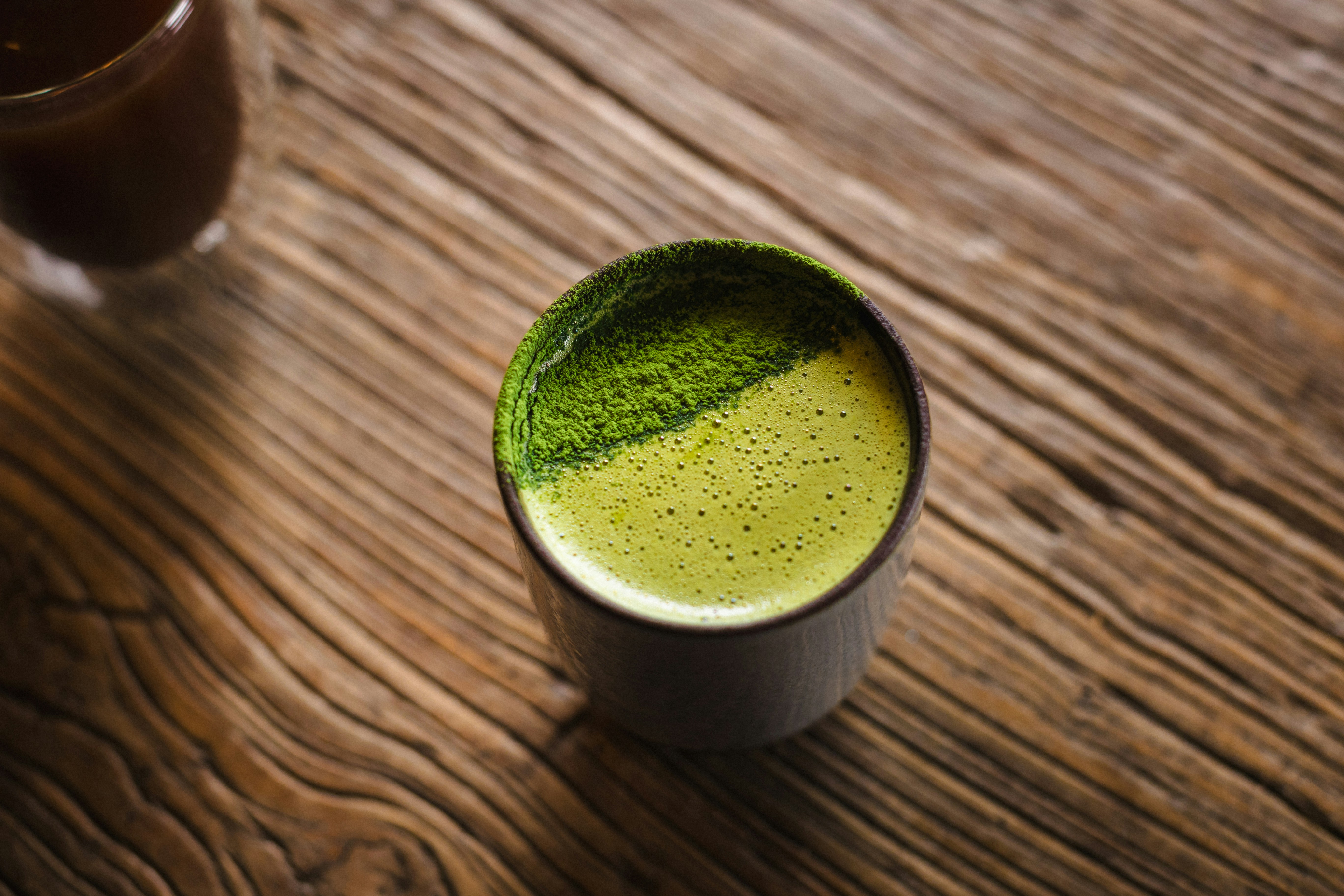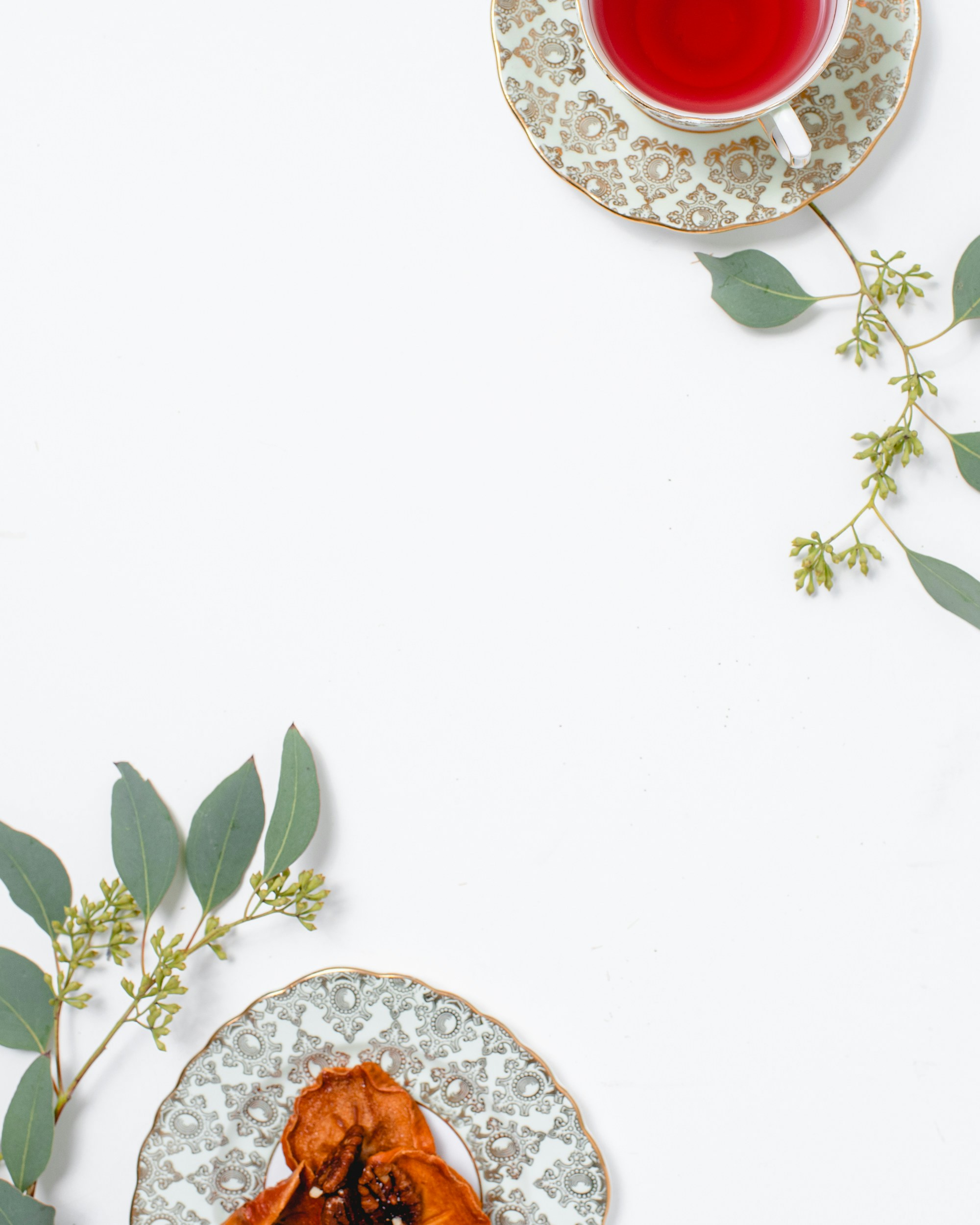Introduction: The Journey into Oolong
Oolong tea, with its rich history and distinct flavors, has steadily gained recognition as an essential component of wellness routines around the globe. Originating in China, oolong has deep cultural roots, often celebrated not just for its unique taste but also for the multitude of health benefits it offers. Many individuals have incorporated oolong tea into their daily practices, finding a profound connection between this fragrant brew and their personal wellness journeys.
For those seeking balance in their lives, oolong tea provides an inviting ritual that transforms mundane moments into time for self-reflection and relaxation. Personal accounts abound of individuals discovering oolong tea during challenging times, using it as a tool for mindfulness. One story features a busy professional who turned to oolong as a remedy for stress-induced fatigue. With each steaming cup, this individual found a moment of respite, turning a simple act of drinking tea into a meditative practice that rejuvenated both body and mind.
Similarly, fitness enthusiasts have embraced oolong for its potential metabolic benefits. The blend of flavors and the optimal caffeine content not only awaken the senses but also provide an energizing boost that complements an active lifestyle. Many practitioners of holistic wellness now routinely suggest oolong as part of a balanced diet, aiming to harness its properties for enhanced physical performance and overall vitality.
As we delve deeper into the multiple facets of oolong tea, it becomes evident that its significance extends far beyond mere taste. It serves as a bridge connecting centuries-old traditions to modern practices, making it a compelling addition to any wellness routine. The journey into the world of oolong tea invites exploration, inviting enthusiasts to discover not only its flavors but also the health-enhancing benefits that have captivated generations.
What is Oolong Tea? A Brief Overview
Oolong tea, a traditional beverage originating from China, holds a distinguished position within the tea family, bridging the gap between green tea and black tea through its unique processing methods. The name “oolong,” which translates to “black dragon,” is derived from the visual appearance of the tea leaves, which are often curled and twisted. This remarkable tea is known for its complex flavors and the nuanced aromas it offers, attributable to the partial oxidation process that characterizes its production.
The cultivation of oolong tea dates back several centuries, with its roots centered in the Fujian province of China. In this region, diverse tea processing methods have been employed, giving rise to various oolong varieties, each possessing distinct flavor profiles and characteristics. Additionally, Taiwan has since emerged as a prominent producer of oolong tea, particularly known for its high-quality Tie Guan Yin and Ali Shan teas. The honored tradition of oolong tea is reflected in ceremonies and rituals that cultivate an appreciation for this beverage, highlighting its significance in various cultures.
What sets oolong tea apart from green and black teas is its unique production process. Oolong undergoes a controlled oxidation that typically ranges from 10% to 80%, depending on the specific type of tea being produced. This process not only influences the tea’s flavor but also develops its aromatic profile, resulting in a beverage that can vary widely in taste, ranging from floral and fruity notes to more robust, earthy flavors. Furthermore, the selective harvesting of oolong tea leaves, often involving the top two leaves and a bud, enhances its quality and taste.
In conclusion, oolong tea occupies a significant place in the world of tea due to its intricate production methods and cultural heritage, offering a delightful experience that reflects both tradition and craftsmanship.
Health Benefits of Oolong: A Natural Ally
Oolong tea is gaining recognition not only for its rich flavor but also for its numerous health benefits. A hybrid between green and black tea, oolong is packed with antioxidants, which play a crucial role in promoting overall well-being. One of the most notable benefits is its potential for weight management. Scientific studies suggest that the unique combination of caffeine and catechins in oolong tea may enhance fat oxidation and improve metabolic rates. This has led many individuals to incorporate it into their weight loss routines, reporting positive results over time.
Moreover, oolong tea has been linked to improved heart health. Research indicates that regular consumption can help lower blood pressure and reduce cholesterol levels. These effects are primarily attributed to the polyphenols found in oolong that promote healthy blood vessel function. Personal testimonials highlight the experiences of those who, after introducing oolong into their daily regimen, noticed not only better cardiovascular metrics but also an increased sense of vitality and energy throughout the day.
In addition to weight management and heart health, oolong tea is known for its metabolism-boosting properties. Individuals have shared anecdotes on how they felt more energetic and alert after incorporating oolong tea into their mornings. This effect may be due to the caffeine content, which can lead to increased alertness and focus. Furthermore, the tea is believed to aid in regulating blood sugar levels, making it a considerate choice for those looking to maintain balanced energy throughout the day.
In conclusion, the health benefits of oolong tea are multifaceted, encompassing weight management, improved heart health, and enhanced metabolic function. These properties, supported by scientific evidence, affirm that oolong tea serves as a natural ally in any wellness routine, resonating with both traditional practices and modern health trends.
The Spiritual Side of Oolong: Mind and Body Connection
Oolong tea holds a unique position within the realm of wellness, often celebrated not only for its health benefits but also for its spiritual significance. The practice of enjoying oolong tea transcends mere consumption; it invites practitioners to embrace a moment of mindfulness and reflection. As many individuals explore spiritual practices, the inclusion of oolong in their routines fosters a deeper connection between the mind and body, enhancing both mental clarity and emotional calmness.
Many proponents of mindfulness find that integrating oolong tea into their meditation or yoga routines significantly enriches their experience. The act of brewing and savoring the warm, fragrant infusion engages the senses, creating a ritual that encourages presence. This mindful practice not only enhances the experience but also serves as a bridge connecting the physical act of drinking tea to a deeper emotional and spiritual realm. Practitioners often report feeling a heightened sense of tranquility and awareness during their meditative sessions when oolong is involved.
Personal anecdotes further illustrate the positive impact of oolong on spiritual well-being. For instance, a yoga instructor shared how she incorporates oolong tea into her pre-class ritual, using it as a way to center herself before guiding others. The cyclical process of brewing tea becomes a meditative practice in itself, allowing her to enter a state of mindfulness that she then imparts to her students. Similarly, individuals who engage in deep breathing exercises alongside sipping oolong often mention a remarkable sense of clarity and connectedness to their inner selves, which enhances their overall spiritual journey.
Thus, oolong tea emerges not just as a beverage but as a vital companion on the path of personal growth and spiritual exploration. By integrating this traditional tea into routines focused on mindfulness and meditation, individuals can significantly enhance their mental and emotional practices, reinforcing the essential mind-body connection that supports overall well-being.
Cultural Rituals: Oolong in Practice
Oolong tea, a traditional beverage originating from China, has been woven into the fabric of various cultural rituals that transcend geographical boundaries. These ceremonies not only celebrate the drink itself but also reflect the deep-seated values of community and wellness. In regions like Taiwan and Fujian Province, the preparation and enjoyment of oolong tea come with elaborate practices that have been passed down through generations. These rituals often serve as a platform for social interaction, where individuals gather to appreciate the delicate flavors and aromas of oolong, fostering a sense of belonging and togetherness.
One prominent example is the Chinese tea ceremony, where oolong tea takes center stage. This ritual showcases the intricate art of tea preparation, emphasizing the importance of mindfulness and presence. Participants engage in a process that involves multiple infusions of the tea leaves, allowing them to savor the unfolding flavors with each brew. Through this practice, individuals not only taste the beverage but also connect deeply with one another, sharing stories and experiences that enhance their collective wellness. Such ceremonies highlight the philosophy that tea is more than just a drink; it is a medium for dialogue, reflection, and communion.
In addition to China, oolong tea rituals are celebrated in various communities around the world, often infused with local customs and traditions. For instance, in parts of Southeast Asia, tea gatherings are common among families and friends, marking special occasions and fostering emotional ties. The preparation of oolong in these settings is often accompanied by traditional music, storytelling, and shared meals, reinforcing the notion that wellness is best achieved in the company of others. Through these dynamic cultural practices, the consumption of oolong tea emerges as a vital component of social well-being, illustrating the drink’s important role across diverse traditions.
How to Incorporate Oolong into Your Wellness Routine
Integrating oolong tea into your wellness routine can be both enjoyable and beneficial. To begin, it is essential to understand the brewing techniques that will help you extract the maximum flavor and health benefits from this unique tea. Start by selecting quality oolong leaves; loose leaf varieties often yield better results than bagged options. For the best flavor, use water that is heated to approximately 190-200°F (88-93°C). Steep the leaves for about 3-5 minutes, allowing the flavors to fully develop. Experimenting with the steeping time might yield different taste profiles, so feel free to adjust to your preference.
When considering optimal times to enjoy oolong, mornings and early afternoons are ideal. Its moderate caffeine content can provide a gentle energy boost, making it a perfect alternative to coffee. For those who practice yoga or meditation, consuming oolong tea about an hour before your session can heighten focus and enhance relaxation. The aromatic qualities of this tea can create a soothing atmosphere, aligning perfectly with your wellness practices.
Additionally, oolong tea can be paired harmoniously with other wellness techniques. After a lively yoga session, for instance, sipping on a warm cup of oolong can hydrate and replenish your body. This tea’s antioxidants also assist in recovery after physical activity. Incorporating mindful moments while you drink can further enhance your experience; consider practicing deep breathing or reflecting on your intentions for the day as you savor each sip.
Incorporating oolong tea into your wellness routine is not simply about the drink itself but about creating a holistic experience. By mindfully infusing this tea into your daily habits, you can nurture both body and mind, ultimately embracing the long-standing traditions and benefits that oolong has to offer.
Common Misconceptions About Oolong Tea
Oolong tea, a highly regarded beverage in traditional Chinese culture, is often surrounded by various misconceptions that can lead to misunderstanding its qualities and benefits. One prevalent myth is related to its caffeine content. Many individuals assume that oolong tea contains significantly less caffeine than other types of tea, such as black and green varieties. However, the reality is that oolong tea offers a moderate caffeine level that can range between 30 to 50 milligrams per cup. This range can vary based on the specific type of oolong and how it is brewed. Thus, those seeking a caffeine fix may find oolong to be a suitable option, offering a balanced energy boost without the jitters often associated with higher caffeine products.
Another misconception involves the health claims surrounding oolong tea. Some proponents assert that it can lead to miraculous weight loss or serve as a cure-all health remedy. While oolong tea does contain antioxidants and has been associated with certain health benefits, such as improved heart health and enhanced metabolism, it is essential to approach these claims with a critical perspective. Numerous studies suggest that when incorporated as part of a balanced diet, oolong tea may contribute positively to overall health, but it should not be relied upon as a sole solution for health issues. Consulting healthcare professionals or nutritionists can provide clarity on realistic expectations regarding oolong tea’s impact on health.
Lastly, best practices for consuming oolong tea are often overlooked. It is commonly advised that oolong should be steeped at a temperature between 185°F and 205°F to fully extract its unique flavors and health properties. Additionally, allowing the tea to steep for a recommended time of three to five minutes can enhance the experience, showcasing its diverse flavor profile. By debunking these misconceptions related to oolong tea, consumers can appreciate its distinct qualities and integrate it thoughtfully into their wellness routines.
Personal Stories: Oolong’s Impact on Individual Journeys
As individuals navigate their wellness journeys, many discover the remarkable effects of oolong tea, a traditional beverage that has transcended cultures and generations. Personal anecdotes from various individuals highlight the profound impact that integrating oolong into daily routines can have on physical and mental wellbeing.
One such story is that of Sarah, a busy professional who used to struggle with chronic fatigue and anxiety. After incorporating oolong tea into her morning rituals, she experienced a notable boost in energy levels. Sarah began to savor the rich, flavorful notes of the tea while enjoying a moment of tranquility before starting her workday. This simple act not only revitalized her mornings but also served as a mindfulness practice that helped reduce her overall stress. She now credits oolong with helping transform her approach to wellness, emphasizing the importance of finding small yet powerful habits that foster resilience.
Another inspiring journey comes from John, an avid runner who sought to improve his performance and recovery through lifestyle changes. Initially skeptical about the benefits of oolong tea, he decided to give it a chance after hearing about its antioxidant properties. John now consumes oolong regularly, noting that it aids in reducing muscle fatigue and enhancing his recovery time after intense workouts. He emphasizes that the tea has positively influenced his hydration strategy and overall health, demonstrating the physiological benefits of integrating this ancient beverage into a modern fitness routine.
These personal stories serve to illustrate the versatile role of oolong tea in enhancing wellness. They resonate with the concept that wellness is not a one-size-fits-all approach. Rather, it encourages individuals to explore various options, such as oolong, that can significantly contribute to their health and personal growth. By sharing such experiences, we inspire others to embrace the benefits of oolong in their own wellness journeys.
Conclusion: Embrace Oolong for Wellness
Incorporating oolong tea into your wellness routine can be a transformative experience. This unique tea, celebrated for its myriad health benefits and rich cultural heritage, offers a delightful way to enhance your well-being. The gentle balance between green and black tea characteristics not only provides an enjoyable flavor profile but also delivers a range of antioxidants, promoting overall health. By choosing to embrace oolong, individuals can unlock a traditional beverage that supports weight management, boosts metabolism, and aids mental clarity.
Moreover, engaging with oolong tea encourages mindfulness and relaxation, essential components of a holistic wellness routine. The ritual of brewing and savoring each cup creates an opportunity for individuals to pause and appreciate the moment, fostering a deeper connection with themselves and their health practices. As you explore various varieties of oolong, from floral Tie Guan Yin to rich Wuyi Rock, you may discover how each one impacts not only your palate but also your overall well-being.
The world of tea is vast, and oolong offers a gateway for enthusiasts to connect with a community that shares a passion for health and wellness. As you delve into the tradition and benefits of oolong, consider sharing your journey with friends, family, or even online forums dedicated to tea appreciation. Celebrating the role of oolong in personal wellness does not only enhance your experience but also fosters a collective embrace of this treasured beverage.
Incorporating oolong tea into your daily routine is more than just a health choice; it is an invitation to a larger journey toward wellness and communal engagement. As you sip your cup of oolong, reflect on the importance of health, tradition, and connection, and let this remarkable tea be a cherished part of your wellness journey.







Leave a Reply